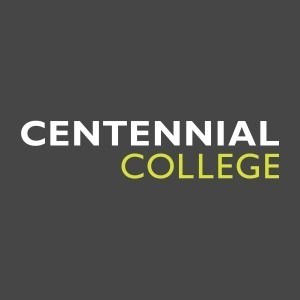Photos of university / #mcgillu
The Bachelor of Science (Integrated) in Nursing at McGill University is a comprehensive and rigorous program designed to prepare students for a rewarding career in healthcare. This innovative undergraduate degree combines theoretical foundations with practical clinical experiences, enabling students to develop a deep understanding of nursing principles, patient care, and health promotion. The program emphasizes a holistic approach to health, integrating biological, psychological, social, and environmental perspectives to ensure graduates are well-equipped to address diverse health challenges in various settings. Throughout their studies, students engage in advanced coursework covering anatomy, physiology, pharmacology, health assessment, and nursing theory, alongside hands-on training in laboratories and clinical environments. McGill’s strong partnerships with hospitals and healthcare institutions provide students with supervised clinical placements, offering real-world application of their knowledge and skills under expert guidance. The curriculum is designed to foster critical thinking, ethical decision-making, and effective communication, preparing graduates to deliver high-quality, patient-centered care. By the end of the program, students are eligible to apply for registration as registered nurses (RNs) and pursue careers across numerous healthcare sectors, including hospitals, community health, research, and policy development. The program also emphasizes lifelong learning, encouraging students to engage in continuous professional development and contribute to advancements in nursing practice. With a faculty renowned for research and teaching excellence, McGill’s Nursing (Integrated) program provides students with a supportive learning environment that promotes academic excellence, innovation, and leadership in healthcare. Graduates of this program are uniquely positioned to make meaningful contributions to health systems locally, nationally, and internationally, driven by a commitment to improving patient outcomes and fostering health equity.
The Bachelor of Nursing (Integrated) program at McGill University is designed to prepare students for a dynamic and rewarding career in healthcare. This comprehensive undergraduate degree combines rigorous academic coursework with practical clinical experiences, equipping students with the essential knowledge, skills, and ethical understanding required for professional nursing practice. The program emphasizes a holistic approach to patient care, integrating theoretical foundations in biomedical sciences, health promotion, and community health with hands-on training in real-world healthcare settings.
Throughout the curriculum, students engage in learning modules that cover fundamental nursing principles, such as patient assessment, medication administration, and care planning. The program also focuses on developing critical thinking, communication skills, and cultural competence to ensure graduates are prepared to work effectively with diverse populations. Interdisciplinary collaboration is a core component, enabling students to understand the importance of team-based care in various healthcare environments.
In addition to classroom instruction, students participate in clinical placements at hospitals, clinics, and community health centers affiliated with McGill University. These placements provide invaluable practical experience, allowing students to apply theoretical knowledge under the supervision of experienced healthcare professionals. The program is structured to progressively increase clinical responsibilities, fostering confidence and competence in nursing practice.
The Nursing (Integrated) program at McGill is committed to fostering leadership qualities, innovative thinking, and a commitment to lifelong learning. Graduates are well-prepared to undertake registration examinations and pursue diverse career opportunities in hospitals, primary care, public health, or specialized areas such as pediatrics, geriatrics, or mental health. Additionally, the program encourages research literacy and evidence-based practice, ensuring that future nurses contribute to quality improvement and health advancement.
Overall, the McGill Nursing (Integrated) program aims to develop compassionate, competent, and professional nurses who are dedicated to improving health outcomes and advancing the nursing profession. The program’s strong academic foundation combined with extensive clinical exposure ensures that graduates are ready to meet the evolving challenges of healthcare systems locally and globally.
General admission requirements for the Nursing (Integrated) program at McGill University include a high school diploma or equivalent with strong academic standing, particularly in sciences such as Biology, Chemistry, and Math. Applicants must have completed courses that meet the university’s prerequisites, demonstrating their preparedness for rigorous coursework. Proficiency in English is mandatory, usually evidenced through TOEFL or IELTS scores if the applicant's primary language is not English. Additionally, applicants are often required to submit a personal statement or letter of intent outlining their interest in nursing and their career goals. Relevant volunteer or work experience in healthcare settings can strengthen an application, although specific experience requirements may vary. Admissions also consider academic achievements, extracurricular involvement, leadership qualities, and references. The program may require an interview or additional assessments as part of the selection process to evaluate candidates' communication skills, motivation, and suitability for nursing practice. Prospective students should also ensure they meet health and background check requirements, including immunizations, criminal record checks, and other health screening protocols established by the university and affiliated clinical institutions. Admission decisions are competitive, and meeting minimum requirements does not guarantee acceptance. Enrollment is contingent upon the successful completion of prerequisite courses and fulfillment of all admission conditions. The exact details of the entrance criteria are published annually on the McGill University admissions webpage and are subject to change, so it is recommended that prospective applicants review the latest information directly from official university sources. Furthermore, applicants should familiarize themselves with the program’s specific academic calendar, application deadlines, and financial requirements, including tuition fees and potential funding opportunities. The Nursing (Integrated) program at McGill aims to prepare students for a dynamic career in healthcare, emphasizing both theoretical knowledge and practical skills through coursework, clinical placements, and research opportunities. Completion of this program equips graduates to work as registered nurses in diverse healthcare environments, contributing effectively to patient-centered care, health promotion, and healthcare innovation.
Want to improve your English level for admission?
Prepare for the program requirements with English Online by the British Council.
- ✔️ Flexible study schedule
- ✔️ Experienced teachers
- ✔️ Certificate upon completion
📘 Recommended for students with an IELTS level of 6.0 or below.
The Nursing (Integrated) program at McGill University offers a comprehensive range of financing options to support students throughout their academic journey. Tuition fees for the program are competitive and vary depending on the student's residency status. Canadian residents benefit from lower tuition rates, while international students are required to pay higher fees. In addition to tuition, students should consider costs related to books, supplies, housing, and living expenses, which can significantly impact the overall cost of attendance.
McGill University provides several financial aid opportunities, including scholarships, bursaries, and grants, aimed at both Canadian and international students. Merit-based scholarships are awarded based on academic achievement, leadership, and community involvement, while need-based bursaries are designed to assist students demonstrating financial necessity. The university also participates in government student loan programs, which can be accessed by eligible Canadian students to help cover tuition and living costs.
Students enrolled in the Nursing (Integrated) program are encouraged to explore external funding sources, such as provincial and federal scholarships, private foundations, and professional associations related to healthcare and nursing. Work-study programs and part-time job opportunities on campus are also available to help students gain work experience and supplement their income.
McGill University has dedicated financial services offices that provide counseling and assistance in navigating the various funding options and application processes. Students are advised to apply early for scholarships and financial aid to maximize their chances of receiving support. Additionally, some students may qualify for specialized programs, such as the International Students Financial Assistance Program or the Indigenous Student Support Program, which offer tailored financial support packages.
Overall, financing the Nursing (Integrated) program at McGill University involves a combination of university-funded scholarships, government aid, external funding sources, and personal or family contributions. The university's commitment to accessible education ensures that students have various avenues to fund their studies and achieve their academic and professional goals in nursing.
The Nursing (Integrated) program at McGill University is a comprehensive undergraduate degree designed to prepare students for a professional career in nursing. This program combines rigorous academic coursework with practical clinical experiences, ensuring that graduates are well-equipped with the knowledge, skills, and competencies required to excel in diverse healthcare settings. The curriculum covers a wide range of topics, including anatomy, physiology, psychology, public health, nursing theory, and ethics, providing students with a solid foundation in both the scientific and humanistic aspects of healthcare.
Students engage in hands-on clinical placements within hospitals, community health centers, and various healthcare facilities, allowing them to apply theoretical knowledge in real-world environments. These practical experiences are integrated throughout the program to promote competency development and professional growth. The program emphasizes critical thinking, evidence-based practice, multitasking skills, and culturally competent care, which are essential qualities for modern nurses who work with diverse populations.
McGill University’s Nursing (Integrated) program also fosters research literacy, encouraging students to participate in research projects and stay updated with advances in healthcare. Graduates of this program are eligible to register as registered nurses upon successful completion of licensing examinations, enabling them to work in a variety of settings such as hospitals, clinics, community health organizations, and educational institutions. The program is delivered by experienced faculty members who are committed to academic excellence and the advancement of nursing knowledge.
Throughout the course of study, students are supported by dedicated academic advisors and clinical instructors who help develop their professional identities and prepare them for the demands of a dynamic healthcare environment. The program also offers opportunities for specialization and advanced studies in areas such as mental health, pediatrics, gerontology, and community health, depending on the student’s interests and career goals.
Given the university’s emphasis on research and innovation, students benefit from access to state-of-the-art facilities and collaborations with healthcare institutions across Quebec and beyond. This integrated program aims to produce competent, compassionate, and innovative nursing professionals who are ready to meet the healthcare challenges of the 21st century and contribute meaningfully to society.




